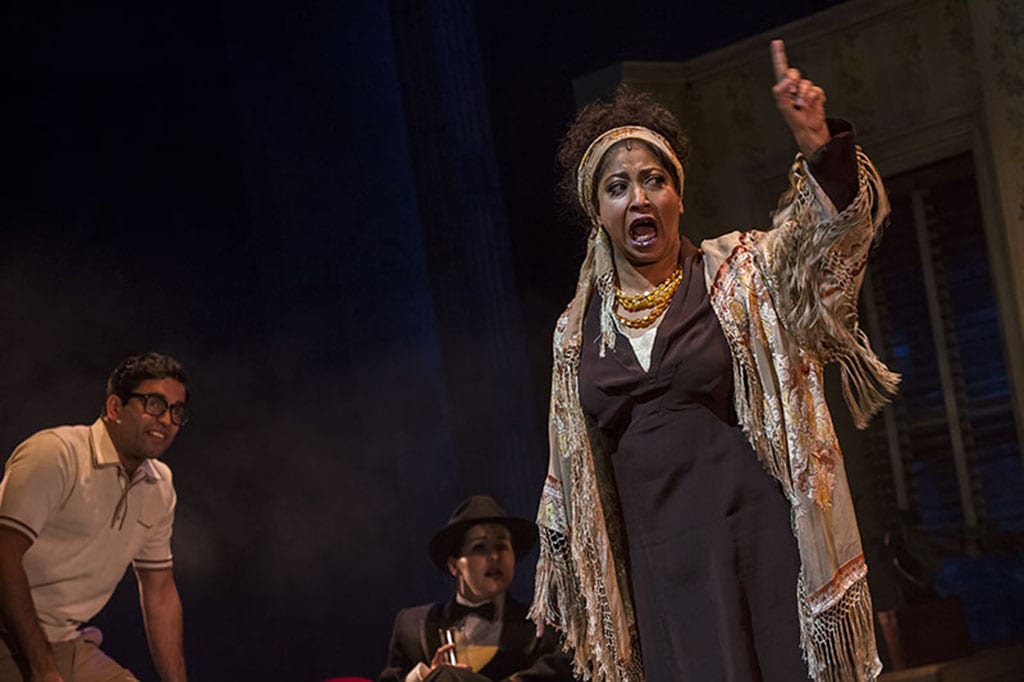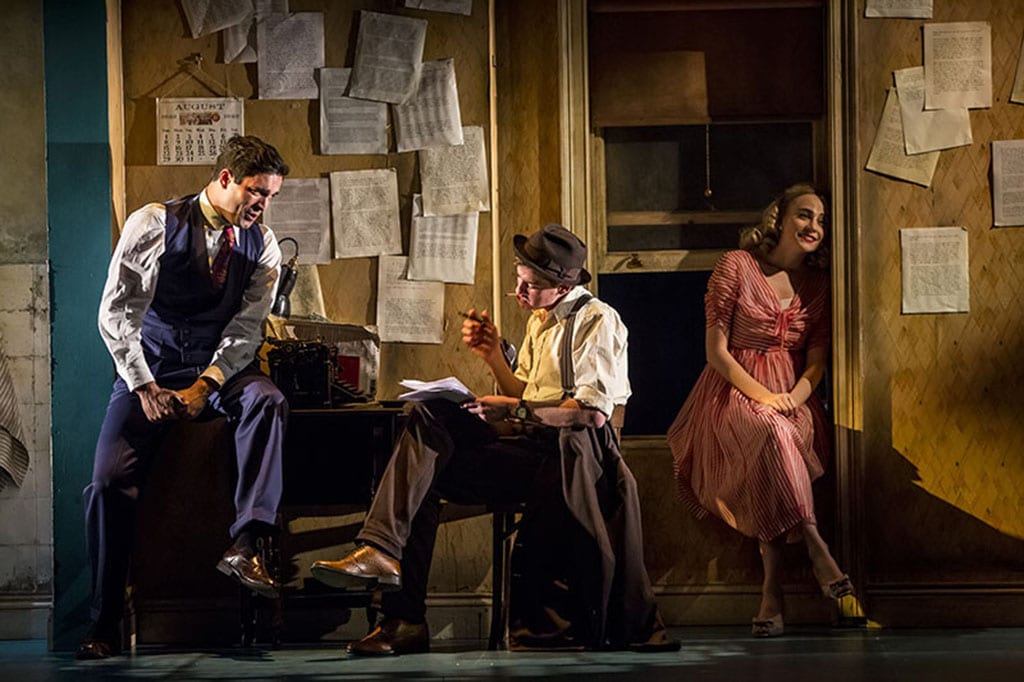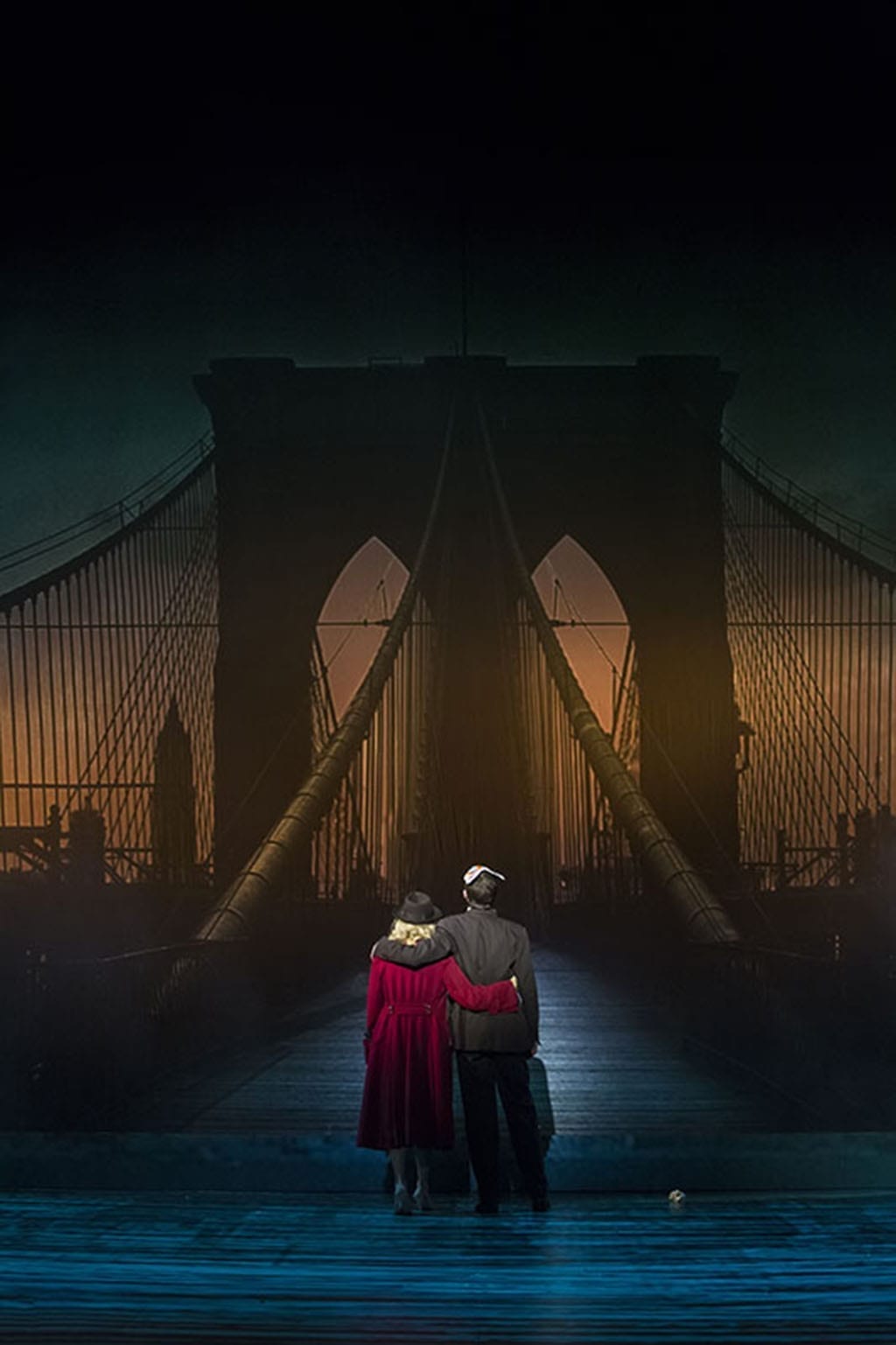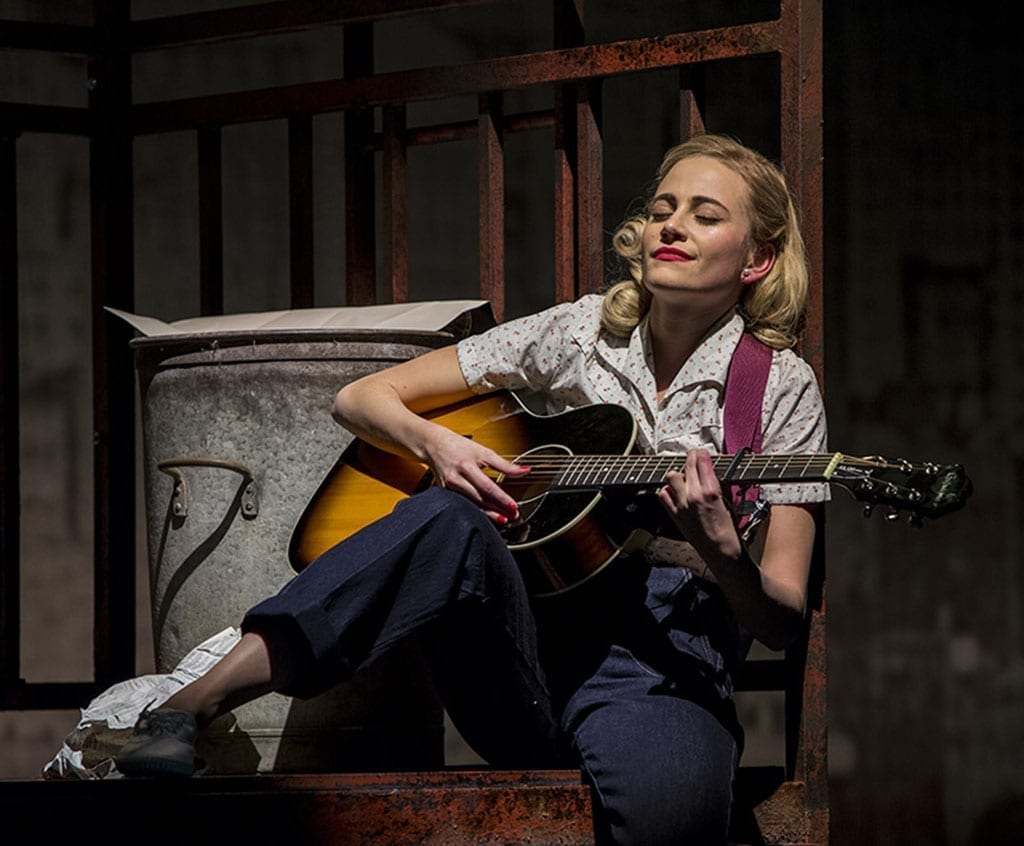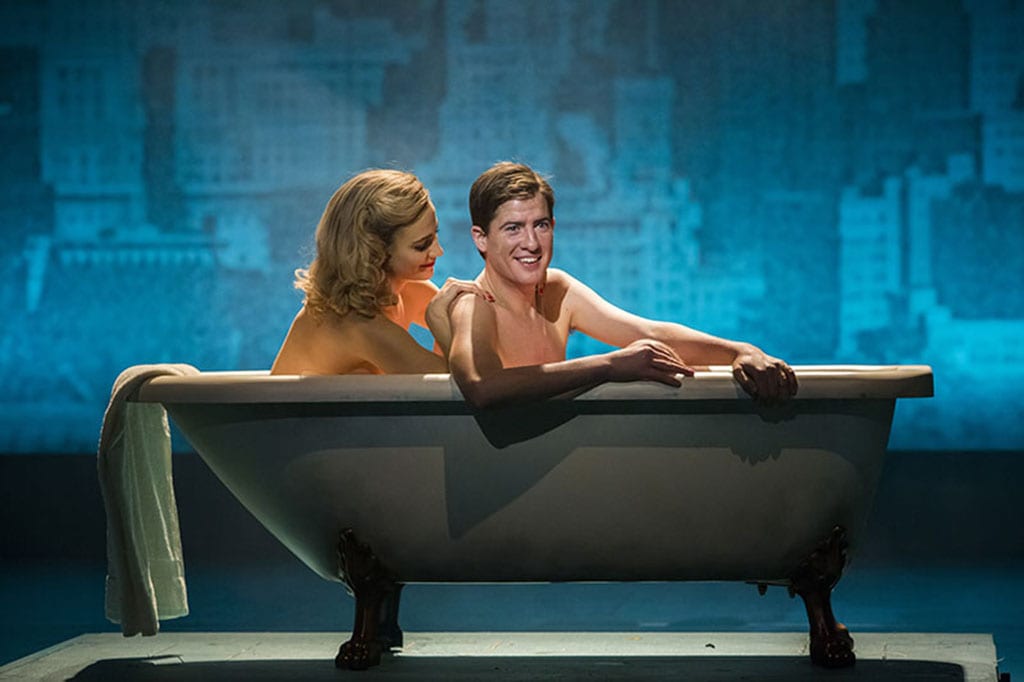The play opens with Holly Golightly walking up to a storefront in a black gown with the Manhattan skyline behind her. She sings a couple of heartfelt lines of Moon River before slinking away. But, this is where comparisons to the iconic Audrey Hepburn movie ends as Richard Greenberg’s adaptation reverts to the source material of Truman Capote’s1958 novella.
Holly is an eccentric socialite who spends her days mingling with wealthy men and stumbling through New York’s nightlife with a free-spirited exuberance. She enthralls those around her, so it’s unsurprising when the narrator, an aspiring writer who shares her brownstone apartment, falls for her. But, Holly’s fantasy life can only last so long and when secrets from her past catch up with her, everyone’s favourite good-time girl struggles to keep control.
This is Pixie Lott’s first foray into acting and she in no way tries to mimic Hepburn’s iconic performance; instead she gives her own engaging interpretation of Holly as charming, headstrong and seductive. Lott is known for her hit singles and she shines during the musical numbers, where the crowd are simultaneously drawn in as Lott sits alone on stage and strips away Holly’s facade to reveal her vulnerability – something she astutely hides in her public life. At times, Lott’s performance could benefit from subtlety, particularly to highlight Holly’s complex emotions when Doc reappears.
Matt Barber plays the Fred to Lott’s Holly and he wins the audience over with his bewitchment over Holly, from the moment she stumbles into his bedroom in the middle of the night and prompts to call him Fred after her brother. A scene that sets the early dynamics between them, she walks around reprimanding him for not sprucing up his place, yet when we see her own apartment, it is similarly run-down. The highlight of the show is their relationship, which develops from one-sided enchantment to an earnest friendship to a resigned acceptance. Bonus points to the cat on stage that follows its cues perfectly and has the audience cooing.
The production isn’t covered by the rose-tinted glasses of Hollywood and brings to life a post-depression America that has lost the majority of its young men to war. The war is only a spectre, but it helps the audience understand that Holly and the other characters are products of this war-torn era and that to an extent, they’re all playing a role. Refreshingly, Capote’s progressive attitudes towards sexuality remain, making the portrayals of love and heartbreak multifaceted.
The sets themselves seamlessly change from simple apartments to bars and cafes. There are a couple of scenes where the stage feels sparse and the audience are left to use their imagination but otherwise the production captures the commotion of New York through the jazz music, eccentric characters and fabulous costumes – Pixie is wearing a silk nightgown one minute and a tea dress the next.
Doc sums up Holly perfectly when he says: “reading dreams, that’s what started her walking down the road a mile and came home; one day she just kept going.” And that’s what this production brings to life; Holly is earnestly chasing a life full of dreams and glamour, one where she’s the main character and is loved and safe. Everyone else is just chasing to keep up with her.

